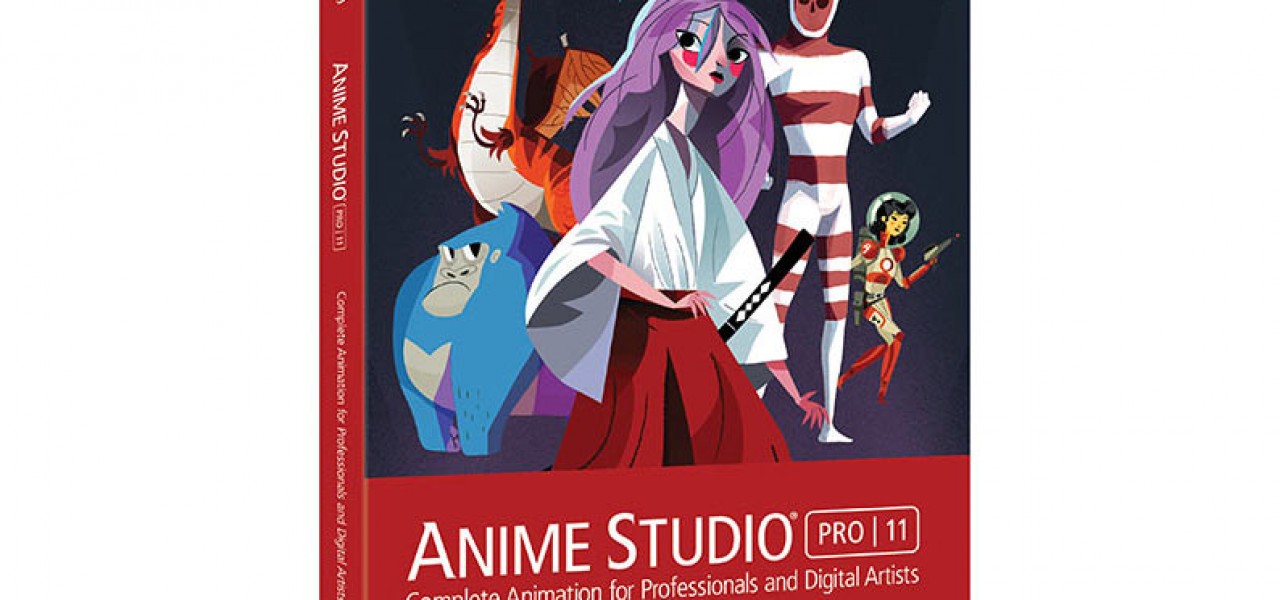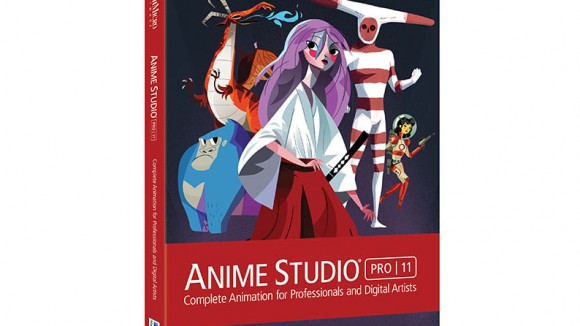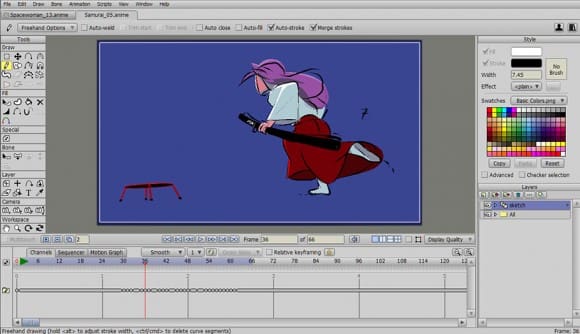

Anime Studio Pro Targets Industry Pros with Launch of Major Upgrade

Smith Micro today announced a major upgrade to its flagship animation software Anime Studio. Launched as Moho in 1999, the software has long been a popular choice for hobbyists and web animators who want to create digital cut-out/puppet animation. With this latest update—Anime Studio 11—adds frame-by-frame capabilities and a significantly upgraded feature set in a bid to increase market share amongst industry professionals and studios.
The makers of the software are emphasizing its potential as an affordable and intuitive professional-grade alternative to software packages like Toon Boom, TVPaint, and Flash. Fahim Niaz, Smith Micro’s director of product management, said in a statement, “For movie studios and other animation production houses, speed to market is critical, so we’ve focused our development of Anime Studio 11 on making it faster and easier for professional artists to work more efficiently in groups, while allowing each artist to use the tools that suit their individual styles and unique vision.”

The ability to mix and match frame-by-frame techniques with Anime Studio’s well-established bone animation system makes the software a legitimate choice for professionals. The software makers recently scored a PR win when Anime Studio was used for parts of the production of the Oscar-nominated Song of the Sea produced by Cartoon Saloon. While the film’s character animation was drawn in TVPaint, Anime Studio was used to create various effects elements, vehicles, and animation in underwater scenes, including sea creatures like jelly fish, anemone, and a whale. The software was incorporated into the pipeline because, according to Cartoon Saloon assistant director Jeremy Purcell, it allowed the studio “to animate the scenes quickly and efficiently and let Tomm (our director) see the scenes in full color and in almost exactly the final look, par the compositing for approval.”

Key features in the new Anime Studio Pro 11 include:
Frame-by-Frame — allows artists to immediately switch between bone-rigging and a frame-by-frame workspace for authentic, precise and life-like animation results.
Layer Referencing — propagates changes from one design layer to all related layers, even across multiple documents, improving accuracy and saving significant time for team-based productions.
Animated Shape Ordering — extends the ability to quickly and easily rearrange shapes anywhere within an animation timeline rather than adjusting each full frame independently.
Animated Bone Targets — lets users switch from one target bone to another when working with animated bone targets. Animating objects where a handoff occurs is now easier and smoother than ever.
Enhanced Tools and Brushes — Freehand drawing is now simpler and more realistic with new automated Merge Strokes, a Smoothing option for round, smooth shapes, and a more efficient Blob Brush for simple shapes. The new Color Points tools lets artists blend colors together in new ways, while Merged Alpha and Drift Angle brushes offer a more natural and pleasing look and feel.
Improved Photoshop File Support — New PSD layers will be applied into Anime Studio when the active file is updated in Photoshop. If layers are re- arranged, Anime Studio will maintain its own layer ordering but still reflect the visual changes made from Photoshop.
JSON File Format — support for Java Script Object Notation (JSON) file format provides faster file processing and more flexible asset tagging within files, making it easier to exchange and manage related assets across workgroups. Backward compatibility with older versions of Anime Studio is retained, as well as compatibility with MotionArtist file formats.
The software, available for Windows and Mac, is sold in two versions: the fully-featured Anime Studio Pro, costing $299, and the entry-level version Anime Studio Debut for $49.99.
For more information visit the Anime Studio website or view a gallery of work made with the software.
Or, to watch a few pieces produced recently with the software, here’s two Mackinnon and Saunders studio promos directed by Craig Knowles and David Ridges respectively:
